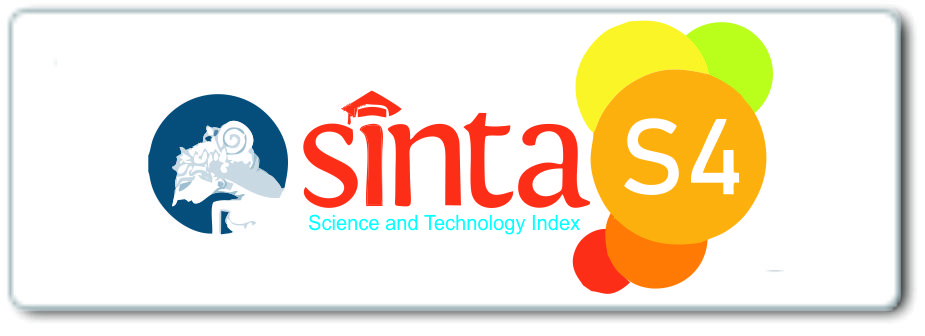KECENDERUNGAN PEMILIHAN DAN DUPLIKASI TEMA SKRIPSI SERTA DAMPAKNYA PADA PENGEMBANGAN ILMU PERPUSTAKAAN DAN INFORMASI
DOI:
https://doi.org/10.14421/thaq.2018.19206Keywords:
library and information science, research and developmentAbstract
The purpose of this paper is to know the trend of the selection and duplication of undergraduate theses themes and their influence on the development of library and information science. This research is conducted at the Department of Library Science of Faculty of Adab and Cultural Sciences at UIN Sunan Kalijaga Yogyakarta. Based on the research on 236 undergraduate theses, there are 10 main themes i.e., User Study, Library Management, Library Utilization, Reading Interest, Computer Technology, Bibliometrics Statistics, Search and Storage Information, Psychology, Archive, and Scientific Communication. Further, this research finds that the development of library science and information has not led to deep scientific integration and interconnection.Downloads
References
Amin, Mohammad. “Profil Penulisan Skripsi Pendidikan Bahasa Arab UIN Malang”. Laporan Penelitian. 2005.
Amirin, Tatang M. Menyusun Rencana Penelitian. Jakarta: Rajawali, 1990.
Gunawan, Imam. Metode Penelitian Kualitatif: Teori dan Praktik. Jakarta: Bumi Aksara, 2017
Hawkins, D. T. “Information science abstracts: tracking the literature of information science. Part 1: definition and map”. Journal of the American Society for Information Science. 2001. 52 (1):44-53
Moleong, Lexy J. Metodologi Penelitian Kualitatif. Bandung: Remaja Karya, 2000.
Nasution, S. Metode Research: Penelitian Ilmiah, Ed. 1. Cet. 8. Jakarta: Bumi Aksara, 2006
Pendit, Putu Laxman. Penelitian Ilmu Perpustakaan Dan Informasi: Suatu Pengantar Diskusi Epistemologi Dan Metodologi. Jakarta: JIB-FS-UI, 2003.
---------------------------- “Kepustakawanan Indonesia dan teknologi konteks sekaligus habitus bagi pengembangan ilmu, Makalah Worksop Pengkajian pembukaan Program Doktor Ilmu Informasi dan Perpustakaan, Bandung., 2007.
Rowley, Jennifer and John Farrow. Organizing Knowlede: An intruduction to managing Access to information, 3rd ed. England: Ashgate Plubishing Limited, 2000.
Setiyaningsih, Sri Isnaeni. “Peta Kecenderungan Penelitian Mahasiswa Bahasa dan Sastra Arab (Upaya Identifikasi dan Pengembangan Tema Penelitian)” Laporan Penelitian, 2009.
Sudaryono. Metodologi Riset di Bidang TI: Panduan Praktis, Teori dan Contoh Kasus. Yogyakarta: Penerbit Andi, 2015.
Sulistyo-Basuki, dkk. Perpustakaan dan Informasi dalam konteks budaya, Jakarta: Departemen Ilmu Perpustakaan dan Informasi. IB-UI, 2006.
Sulistyo-Basuki. Pengantar Ilmu Perpustakaan. Jakarta: Universitas Terbuka, 2011.
-------------------------2007. Filosofi ilmu informasi dan perpustakaan, Makalah Worksop Pengkajian pembukaan Program Doktor Ilmu Informasi dan Perpustakaan, Bandung.
Undang-Undang nomor 20 tahun 2003 tentang Sistem Pendidikan Nasional.
Wahab, Muhbib A. 2004.” Wacana Studi Bahasa Arab di UIN Jakarta”. Laporan Penelitian.
Wasito, Hermawan. 1993. Pengantar Metodologi Penelitian. Jakarta: Universitas Terbuka Depdibud.
Downloads
Published
Issue
Section
License
Copyright (c) 2020 Anis Masruri

This work is licensed under a Creative Commons Attribution-NonCommercial-ShareAlike 4.0 International License.
Authors who will publish with this journal agree to the following terms:
- Thaqafiyyat: Jurnal Bahasa, Peradaban dan Informasi Islam publishes all articles entirely in full text.
- It is permissible for readers to download and to use it for scientific purposes and scientific dissemination.
- Authors retain copyright and grant the journal right of first publication with the work simultaneously licensed under a Creative Commons Attribution License that allows others to share the work with an acknowledgement of the work's authorship and initial publication in this journal.
- Authors are able to enter into separate, additional contractual arrangements for the non-exclusive distribution of the journal's published version of the work (e.g., post it to an institutional repository or publish it in a book), with an acknowledgement of its initial publication in this journal.
- Authors are permitted and encouraged to post their work online (e.g., in institutional repositories or on their website) prior to and during the submission process, as it can lead to productive exchanges, as well as earlier and greater citation of published work.









